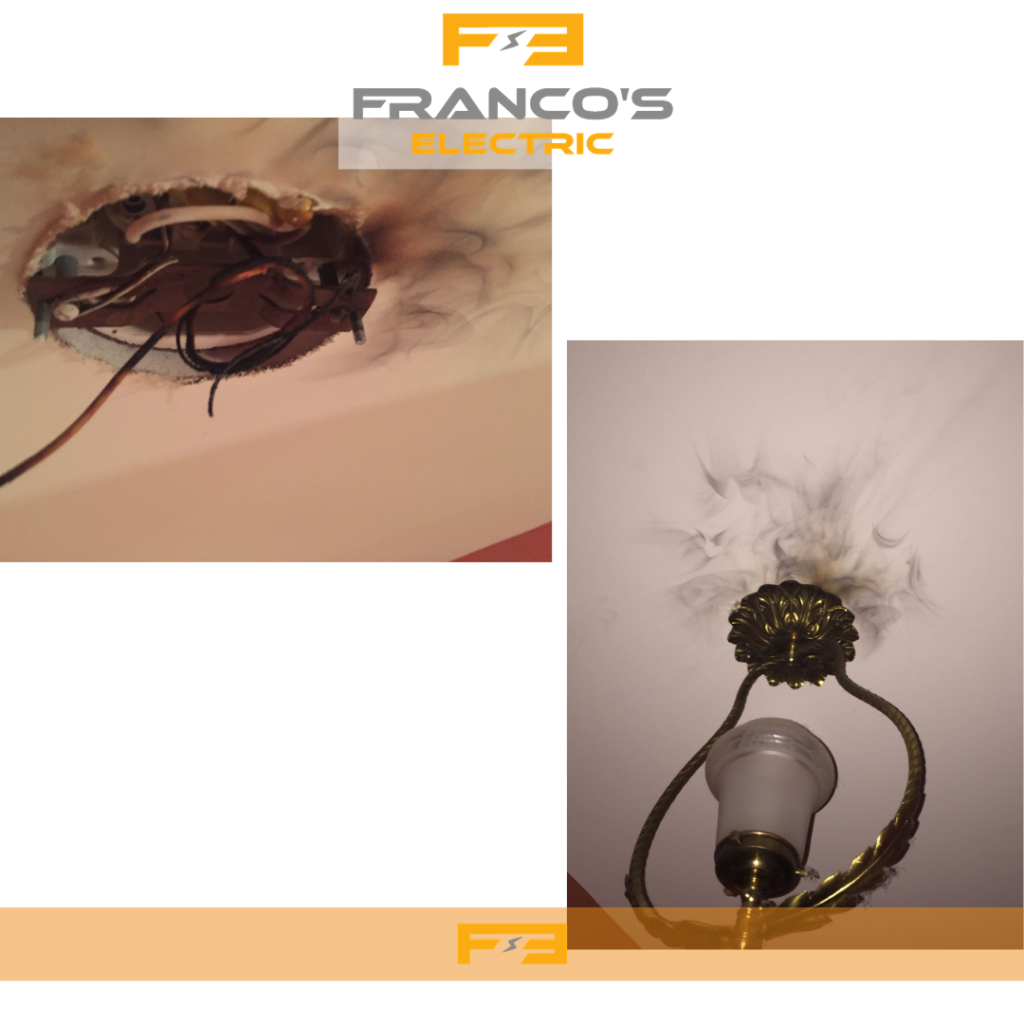Safe from electrical fires: As the colder months slowly approach and temperatures begin to drop, people naturally spend more time inside their homes. Whether it’s working remotely, studying, or simply staying cozy indoors, this increased indoor activity means more electricity use. From running heaters and appliances to lighting up rooms, energy demand at home rises — and with it, the risk of electrical accidents.
What many homeowners don’t realize is that electricity can be a hidden danger. It’s crucial not to underestimate the potential risks associated with faulty wiring, overloaded outlets, or outdated electrical systems. According to safety statistics, one-third of all home structure fires originate from electrical sources. And because these fires often start hidden behind walls or within appliances, they can be much harder to detect and control.
At Franco’s Electric, we prioritize your home electrical safety. That’s why we’ve prepared this essential guide on electrical fire safety tips for your home — to keep you protected while spending more time indoors.
1️⃣ Cut Off the Electricity Source
If you notice a device or appliance causing sparks, smoke, or flames, and it’s safe to approach:
- Immediately unplug the device by pulling the cord from the outlet.
- If the fire is coming from an outlet itself, turn off the power to that outlet at your breaker panel.
Cutting the power source quickly can prevent the fire from escalating and spreading to other areas of your home.
2️⃣ Smother Small Fires with Baking Soda
For small, manageable fires caused by electrical appliances:
- Use sodium bicarbonate (baking soda) to smother the flames.
Baking soda contains sodium, which can help extinguish small electrical fires by cutting off the oxygen source.
Important: Never use flour or other cooking powders, as these are flammable and may worsen the fire.
3️⃣ Remove the Oxygen Source
If baking soda isn’t available and the fire is small:
- You can attempt to cover the flames with a heavy blanket, towel, or clothing.
This cuts off the oxygen supply and can help extinguish the fire.
Ensure it’s safe before doing this — never put yourself at risk in the process.
4️⃣ Never Use Water on Electrical Fires
A common mistake during home emergencies is trying to put out an electrical fire with water.
Water conducts electricity, and throwing water on an electrical fire can:
- Cause serious shocks or electrocution.
- Help the fire spread as water carries the electrical current to other parts of the room.
Always remember — for home electrical safety, water is never the solution for electrical fires.
5️⃣ Know and Check Your Fire Extinguisher
Not all fire extinguishers are made equal. Electrical fires are classified as Class C fires, which means:
- You need an extinguisher that’s either rated for Class C or a multi-purpose extinguisher labeled ABC.
Most modern household extinguishers carry an ABC rating, but it’s always wise to check before an emergency occurs. Keep your fire extinguisher in an accessible location and make sure everyone in the home knows how to use it.
Prevent Electrical Fires: Proactive Steps
The best way to stay safe is to prevent fires from happening in the first place.
Here are a few proactive electrical safety tips:
- Have your home’s wiring and outlets professionally inspected every few years.
- Avoid overloading extension cords or power strips.
- Replace frayed or damaged appliance cords immediately.
- Install GFCI (Ground Fault Circuit Interrupter) outlets in moisture-prone areas like kitchens and bathrooms.
- Schedule regular maintenance with a trusted electrical service company like Franco’s Electric.
Final Thoughts
Safe from electrical fires- As you spend more time indoors this winter, don’t overlook the risks posed by increased electricity usage. Electrical fires can happen quickly and silently, but with a little preparation and awareness, you can protect your home and family.
For expert electrical inspections, repairs, and system upgrades, Franco’s Electric is your trusted local partner that will give you electrical services. Contact us today to schedule a safety check and ensure your home is ready for the season ahead.




